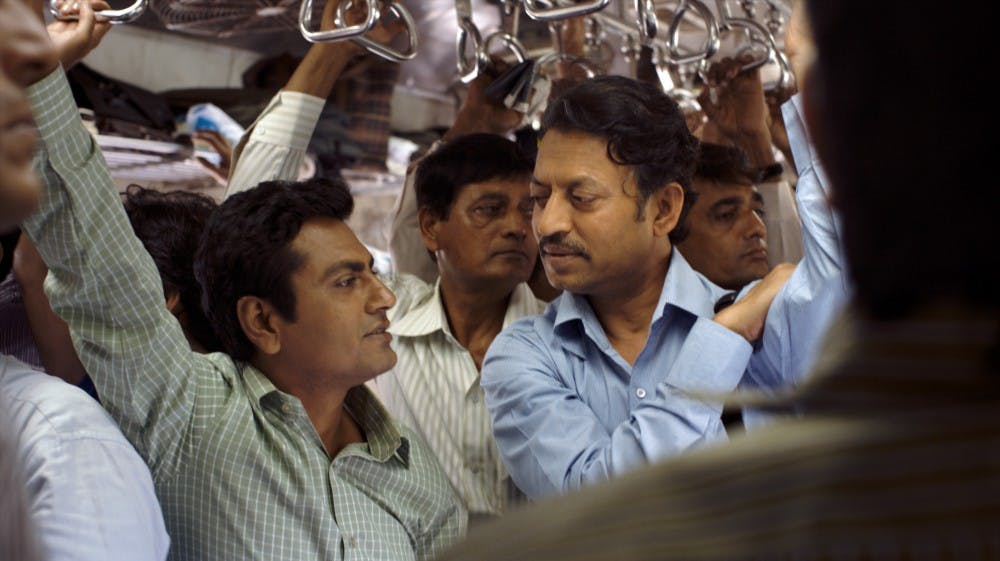On an overcrowded public bus in India, a man on the work commute gets felt up by a smiley, wrinkly stranger; no one notices. Across town, another man stares up at a ceiling fan, waiting to die.
Director Ritesh Batra lifts a magnifying glass to modern-day Mumbai—a city bursting at the seams—to examine these most microscopic stories of human interaction. “I think we forget things if we have no one to tell them to,” one character muses. Often, these stories and connections in “The Lunchbox” are fascinating and unexpected.
The story begins with a happy accident, giving life to one of the film’s favorite lines: “Sometimes the wrong train can lead you to the right station.”
One day, the dabbawala (a lunch delivery service) mistakenly drops middle-class widower Saajan Fernandez (Irrfan Khan) a lunchbox from a young woman named Ila (Nimrat Kaur). The box was meant to go to her husband. Noticing the mistake, she pens a note to Fernandez, and tucks it into the lunchbox for delivery. Despite the original mistake, Saajan and Ila allow the mismatched deliveries to continue, communicating back and forth via lunchbox letter. In time, they develop an unconventional but rewarding friendship.
Andante-paced, sprinkled with humor, The Lunchbox is a collective of snapshot stories on what it means to connect with another human being. The mundane humdrum of modern life in Mumbai is captured gorgeously in cultural context. The tantalizing possibility of future change is portrayed with lingering, sometimes indulgent shots of Saajan and Ila lost deep in thought.
While impressive for what it accomplishes in just over 100 minutes, The Lunchbox comes off as almost a dream-like teaser clip, hesitating to commit itself to any kind of concrete conclusion or resolution. Much is left unanswered. The film takes its time, exploring human action and reaction, and is enjoyable in what it accomplishes, but does so at the expense of a fuller, richer ending.
At its core, “The Lunchbox” is very human, with each character searching for acknowledgment and love in society. The film is enjoyable as a diluted, but elegant cultural drama on micro-level human relationships and self-discovery.





